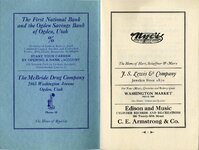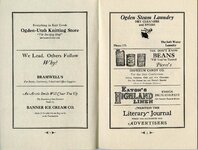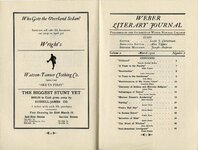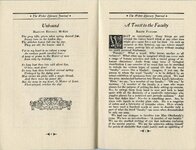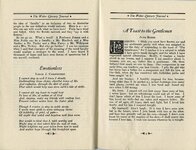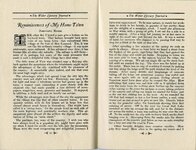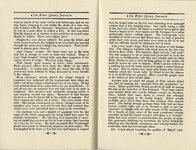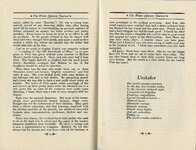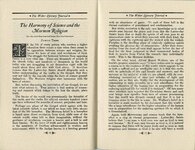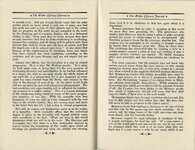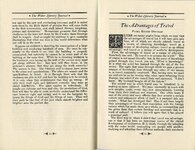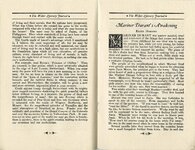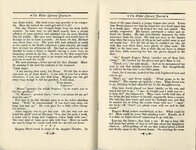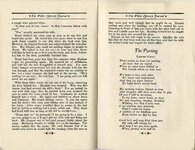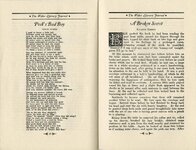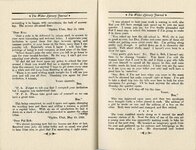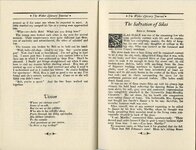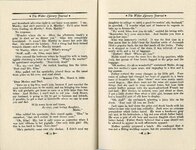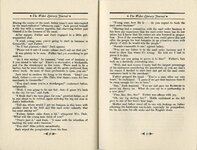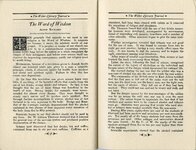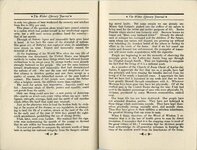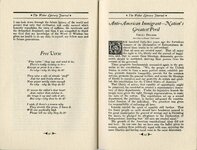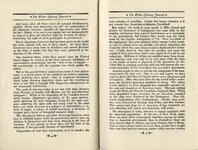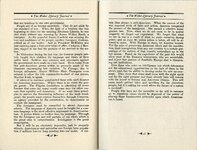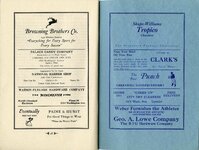| Title |
1922 The Weber Literary Journal Vol. 2 No. 2 March |
| Creator |
Weber Normal College |
| Contributors |
Students of Weber Normal College |
| Description |
The Weber Literary Journal is a bi-monthly literary magazine published by the students of Weber Normal College and Weber College from 1921 to 1926. |
| Subject |
Students; Forms, Literary; College students--Education; Ogden (Utah); Weber Stake Academy; Weber Normal College; Weber College; Weber State College |
| Digital Publisher |
Stewart Library, Weber State University |
| Date Original |
1922 |
| Date |
1922 |
| Date Digital |
2013 |
| Item Description |
6 x 9 in. paperback. Pages number 1-48. |
| Type |
Text |
| Conversion Specifications |
Archived TIFF images were scanned at 400 dpi with an Epson Expression 10000XL scanner. OCR done with ABBYY Reader. JPG and PDF files were created for general use. |
| Language |
eng |
| Rights |
Public Domain. Courtesy of University Archives, Stewart Library, Weber State University |
| Source |
Archives LH1.W375 |
| Format |
application/pdf |
| ARK |
ark:/87278/s6k6h8qd |
| Setname |
wsu_olp |
| ID |
76730 |
| Reference URL |
https://digital.weber.edu/ark:/87278/s6k6h8qd |
| Title |
012_page 22 and 23 |
| Creator |
Weber Normal College |
| Contributors |
Students of Weber Normal College |
| Description |
The Weber Literary Journal is a bi-monthly literary magazine published by the students of Weber Normal College and Weber College from 1921 to 1926. |
| Subject |
Students; Forms, Literary; College students--Education; Ogden (Utah); Weber Stake Academy; Weber Normal College; Weber College; Weber State College |
| Digital Publisher |
Stewart Library, Weber State University |
| Date Original |
1922 |
| Date |
1922 |
| Date Digital |
2013 |
| Item Description |
6 x 9 in. paperback. Pages number 1-48. |
| Type |
Text |
| Conversion Specifications |
Archived TIFF images were scanned at 400 dpi with an Epson Expression 10000XL scanner. OCR done with ABBYY Reader. JPG and PDF files were created for general use. |
| Language |
eng |
| Rights |
Public Domain. Courtesy of University Archives, Stewart Library, Weber State University |
| Source |
Archives LH1.W375 |
| Format |
application/pdf |
| Setname |
wsu_olp |
| ID |
78348 |
| Reference URL |
https://digital.weber.edu/ark:/87278/s6k6h8qd/78348 |


